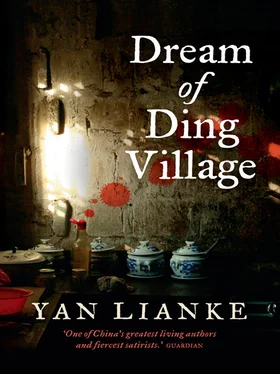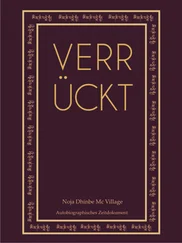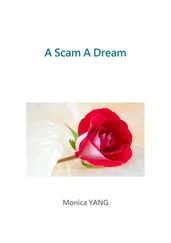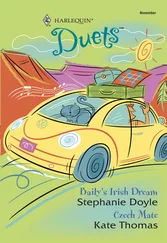Blood banks opened in the village market, at the village crossroads and in the empty rooms of private homes. They even opened in converted cowsheds. The owners would simply scrub down the floors and walls, lay wooden planks over the trough to make a table and hang blood-collection vials from the rafters. With this and some basic equipment — needles, syringes, plastic tubes, bottles of rubbing alcohol and more vials — they were ready to begin buying and selling blood.
Throughout the village, blood-filled plastic tubing hung like vines, and bottles of plasma like plump red grapes. Everywhere you looked there were broken glass vials and syringes, discarded cotton balls, used needles and splashes of congealed blood. Bottles for collecting and sorting blood plasma dangled from rafters and littered the surfaces of benches and tables. All day long, the air was filled with the stench of fresh blood.
The trees of the village — Chinese mahogany, elm and paulownia — absorbed this same air, and their leaves and bark began to take on a faint red hue. In the past, the leaves of the scholar trees had been soft and thin, pale yellow with greenish-brown threads. But this year, the new leaves were tinged with pink and veins of brownish-purple. The veterinary hospital, which had set up its blood bank beneath a scholar tree at the west end of the village, collected so much blood that the leaves of that tree soon turned reddish-orange, its leaves much riper and plumper than in previous years.
The village dogs, alerted by the scent of blood, spent all day long sniffing the air and scratching at the doors of the blood banks. Sometimes a dog would manage to run in and grab a few wads of blood-soaked cotton in its jaws before being kicked out. Afterwards, the dog would trot back to its hideaway to gnaw and swallow its prize.
The village was filled with doctors and nurses in white lab coats. They seemed to work without rest, their foreheads soaked with perspiration, rushing back and forth like shoppers at a temple fair. They spent their days drawing blood, handing out wads of sterile cotton and telling people to keep the cotton pressed to their arms for at least five minutes.
‘Press for five minutes. . press for five minutes. .’ The doctors and nurses repeated this phrase so often that it became their mantra.
Doctors advised the villagers to drink sugar-water after having their blood drawn. Soon all of the local shops had sold out of sugar, and people had to order supplies from other counties and provinces.
Doctors counselled the villagers to take several days of bed rest after having blood drawn. So, on sunny days, the streets, alleyways, courtyards and doorways were crowded with villagers lounging on rattan chairs, wooden beds and cots.
Doctors encouraged residents from neighbouring villages and hamlets to come to Ding Village to sell blood. Soon the streets of Ding Village were crowded to overflowing with a never-ending stream of visitors. Ding Village added two new restaurants to cater for the traffic, and two stalls that sold salt, sugar, sundries and other blood-enhancing foodstuffs and tonics.
Ding Village hustled and bustled, flourished and thrived.
Ding Village quickly became Wei county’s model blood-selling village. That same year, the county director sold his Jeep and bought a brand-new luxury sedan. He returned to the village in style, sauntering around the streets in his chauffeur-driven sedan and stopping to inspect every blood station along the way. He stopped off at my parents’ house, where he ate two bowls of egg-and-mushroom noodles, then he dropped by at the school to shake my Grandpa’s hand and give him a few words of unexpected praise.
‘Professor Ding,’ he said, warmly clasping Grandpa’s hand. ‘You’re the saviour of Ding Village. You liberated it from poverty and made it rich!’
But Ding Village’s blood boom was short-lived.
Cracks began to appear. The hustle and bustle receded. Things began to quiet down.
Then my father took the stage.
4
The people of Ding Village sold blood on a rotation system based on age, blood type, physical health and other factors. Nearly every villager from the age of eighteen to fifty was issued a blood-donation card, about the size of a small business card, printed on cheap brown paper. The front of the card listed your name, age, blood type and any chronic diseases or ailments. On the back was a chart that recorded the dates and quantity of each blood sale. Your card stipulated how often you were allowed to sell your blood. Fortunately for the villagers, most were allowed to sell blood once a month. Some villagers between the ages of eighteen and twenty-five — by virtue of their youth and good health — were even allowed to sell one vial of blood every fortnight. A few were limited to once every two or three months.
For this reason, the blood banks were forced to become mobile blood units: they set up camp in Ding Village one month, then moved on to Willow Hamlet, Yellow Creek or Two-Li Village the next.
After the business went mobile, selling blood in Ding Village became much less convenient. No longer could a villager show up at the local blood bank with a bowl of food and an extended arm, eat his meal as the blood dripped from his veins into a collection bottle slung from his belt, and walk out with full belly and a fistful of cash. Nor could a villager stop at the blood bank on her way home from the fields and leave with a nice crisp 100-yuan note (emblazoned with the smiling face of Chairman Mao), which she held up to the sunlight to check that it wasn’t counterfeit.
Until, one day, my father made a trip to the city and returned home with a load of needles, syringes, plastic tubing, sterile cotton wipes and glass vials. He dumped his purchases on the bed, fetched a wooden plank from the pigsty and fashioned it into a hand-lettered sign that read: ‘Ding Family Blood Bank’. Then he walked out to the scholar tree in the centre of the village, clanged a rock against the metal bell and shouted loudly enough for the whole village to hear:
‘If you want to sell blood, come see Ding Hui at the Ding Family Blood Bank. . the others only pay eighty per vial, but I’ll give you eighty-five!’
Sure enough, after my father had repeated this announcement several times, the villagers began to emerge from their homes. By noon, our family’s house was surrounded by people clamouring to sell their blood.
That was the day the Ding Family Blood Bank was born.
Within six months, Ding Village had given birth to a dozen more private blood banks. Because the owners were too inexperienced to know where to sell the blood they had collected, they sold it to my father instead. He then resold it at a considerable markup to the blood-collection trucks that loitered outside the village late at night. Once again, blood-selling took Ding Village and the surrounding villages by storm. Ten years later, when sickness descended on the plain and those who had sold their blood discovered they had the fever, death became commonplace. People died like moths to a flame.
They died like falling leaves.
Their light extinguished, gone from this world.
1
It is late autumn, the dawn of a new day. The sun rises above the East Henan plain. A blood-red ball turning the earth and sky a deep shade of crimson. As red unfurls, so follows morning. Another day begins.
Grandpa woke with the sunrise to begin his rounds, and was now spreading the news about Ma Xianglin’s performance at the school that evening.
‘Anyone home?’ he called, poking his head in the door of the first house. ‘There’s a zhuizi concert at the school tonight, to celebrate the new medicine. You should come along. . it’s better than being shut up at home.’
Читать дальше












